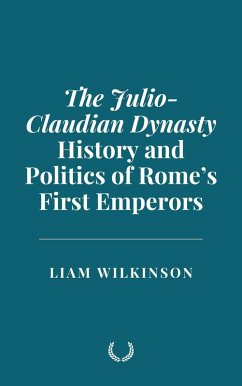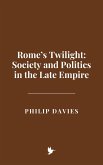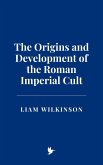The work highlights Augustus' foundational efforts in establishing the imperial system, balancing military power, propaganda, and public perception to secure Rome's transition from Republic to Empire. It then explores the complex legacy of Tiberius, whose reign was marked by increasing paranoia and the decline of senatorial power, followed by the erratic rule of Caligula, whose excesses led to his assassination. The narrative continues with an analysis of Claudius, whose reign brought stability despite political challenges and reliance on freedmen, and ends with Nero, whose destructive rule and eventual suicide precipitated the fall of the Julio-Claudian dynasty.
The book not only examines the personal flaws and triumphs of these emperors but also situates their reigns within the broader context of the empire's evolution. It investigates the military's central role in both consolidating and threatening imperial authority, the economic strategies that shaped Rome's prosperity and decline, and the intricate relationship between the emperor and the Senate. Ultimately, the fall of the Julio-Claudian dynasty set the stage for the Flavian dynasty and a reorganization of imperial power, underlining the fragility of autocracy in ancient Rome and the inherent instability of dynastic succession. Through this comprehensive examination, the book sheds light on the complexities of governance in one of history's most powerful empires, revealing the lasting impact of the Julio-Claudian emperors on the future of Rome.
Dieser Download kann aus rechtlichen Gründen nur mit Rechnungsadresse in A, B, CY, CZ, D, DK, EW, E, FIN, F, GR, H, IRL, I, LT, L, LR, M, NL, PL, P, R, S, SLO, SK ausgeliefert werden.









